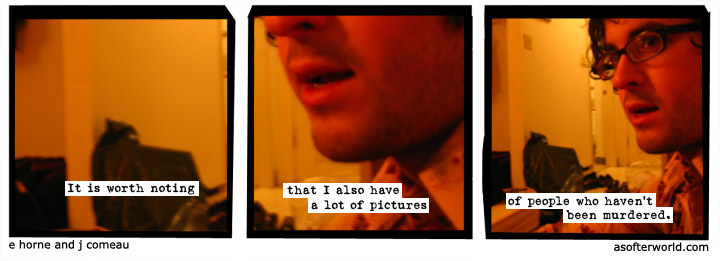this post was submitted on 01 May 2024
25 points (90.3% liked)
Actual Discussion
219 readers
1 users here now
Are you tired of going into controversial threads and having people not discuss things, circlejerking, or using emotional responses in place of logic? Us too.
Welcome to Actual Discussion!
DO:
- Be civil. This doesn't mean you shouldn't challenge people, just don't be a dick.
- Upvote interesting or well-articulated points, even if you may not agree.
- Be prepared to back up any claims you make with an unbiased source.
- Be willing to be wrong and append your initial post to show a changed view.
- Admit when you are incorrect or spoke poorly. Upvote when you see others correct themselves or change their mind.
- Feel free to be a "Devil's Advocate". You do not have to believe either side of an issue in order to generate solid points.
- Discuss hot-button issues.
- Add humour, and be creative! Dry writing isn't super fun to read or discuss.
DO NOT:
- Call people names or label people. We fight ideas, not people here.
- Ask for sources, and then not respond to the person providing them.
- Mindlessly downvote people you disagree with. We only downvote people that do not add to the discussion.
- Be a bot, spam, or engage in self-promotion.
- Duplicate posts from within the last month unless new information is surfaced on the topic.
- Strawman.
- Expect that personal experience or morals are a substitute for proof.
- Exaggerate. Not everything is a genocide, and not everyone slightly to the right of you is a Nazi.
- Copy an entire article in your post body. It's just messy. Link to it and maybe summarize if needed.
For more casual conversation instead of competitive ranked conversation, try: [email protected]
founded 9 months ago
MODERATORS
you are viewing a single comment's thread
view the rest of the comments
view the rest of the comments

In my experience arguments that broadly characterize groups of people aren't make in good faith. No matter how that sentiment is reworded.
In my opinion the cruelty is the point is a coping sort of term. When faced with something uncomfortable or even unconscionable I try to understand the situation.
Why does police violence disproportionately affect minorities, for example? It isn't new. This shit was around long before Rodney King. The only thing that changed recently was that the killer went to jail.
When I ask myself how I live with a society and a law enforcement system that allows these things to happen I try to understand why. It seems to me that either one of two things could be true. Either it is incompetence, or that the cruelty is the point.
Seems to me that the cruelty is the point. I don't think every cop is a bastard, for example. See my first point about generalizing. I do think there is a voting bloc that's never encountered the law enforcement arm of our society and they'll continue to vote and act in ways that lack empathy.
Because to them, the cruelty is the point. A deterrent to crime. Don't steal anything if you don't want to get cornholed or shivved in prison. Don't have a criminal history, because if you do then it's okay for someone to kneel on your neck for 10m.
I could very much see how, by not being able to understand certain situations, someone might assume that cruelty was the point, but it dismisses the reasons a person or group might attempt something. Cruelty is rarely the point.
The only way we can stop abuses is by doing away with simplistic "chant"-like phrasing and finding the real issues behind things.
To use your example, policing. It's a complex one, but I can assure you that in no police training ever tells the trainees to be massive dicks and injure every minority they see. The point can be power. The point can be maintaining the letter of the law, and at their sole discretion. The point can be self-preservation out of fear for themselves. We can't know all of them, and they change in the moment depending on the situation.
If cruelty was the point, then we could just appoint non-cruel people to be officers and the problem is solved, but that isn't the case. We have to address the underlying issues which are different for every officer. That's why it's complex. We can start with systemic corrections such as de-escalation policies being the default, choosing different response teams for different issues, removal of lethal weapons, and harsher punishments for missteps. Those have been found to be effective. But simply hand-waving away things as "cruelty is the point" doesn't help fix the situation, it dismisses it. We must come at bad situations with ways to stop them, not simply be angry at them.
Why were 3 of the officers acquitted in the rk beating? They for sure hit the guy. More than once.
Why were they acquitted? I have no idea as I was too young at the time to be following trials, but it doesn't mean anything about my previous statement was incorrect.
People can be cruel, but the goal is not often cruelty. In this instance, the goal for the officers was most likely to regain a feeling of power in my best estimation - a "how dare you not do what I say" attitude and they used cruelty to get it.
Again, their motivation doesn't explain why they got off, however. I disagree with that decision wholeheartedly.